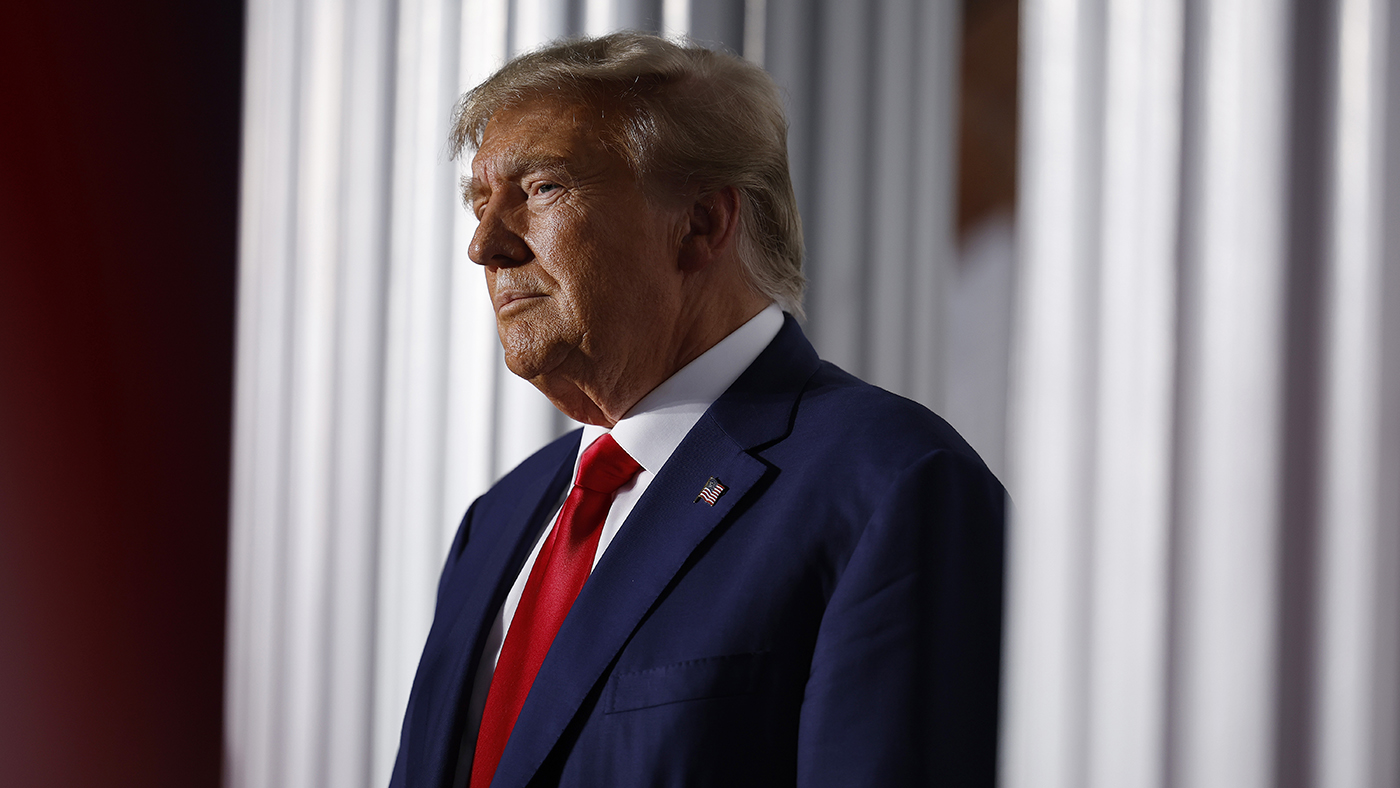Instant Opinion: ‘Tories may win the election but lose their soul’
Your guide to the best columns and commentary on Monday 30 September

A free daily email with the biggest news stories of the day – and the best features from TheWeek.com
You are now subscribed
Your newsletter sign-up was successful
The Week’s daily round-up highlights the five best opinion pieces from across the British and international media, with excerpts from each.
1. Clare Foges in The Times
on the Conservatives
The Week
Escape your echo chamber. Get the facts behind the news, plus analysis from multiple perspectives.

Sign up for The Week's Free Newsletters
From our morning news briefing to a weekly Good News Newsletter, get the best of The Week delivered directly to your inbox.
From our morning news briefing to a weekly Good News Newsletter, get the best of The Week delivered directly to your inbox.
Tories may win the election but lose their soul
“Johnson and his allies may believe that the ugly tactics of recent weeks are strictly time-limited, that once Brexit has been “done” there will be a reversion to reasoned rhetoric and responsible government; but this feels less like a blip than a sea-change into something coarse and strange. Seeing the party heading to success at the polls with its divisive, two nations shtick, the same words keep floating to mind. ‘For what shall it profit a man, if he shall gain the whole world, but lose his soul?’ And what shall it profit a party if it wins an election but coarsens parliament, trashes its brand, undermines our national reputation, loses its soul?”
2. Nick Timothy in The Daily Telegraph
on political divides
A free daily email with the biggest news stories of the day – and the best features from TheWeek.com
Our politics is following the path of America's vicious culture wars
“In the US culture wars, the Democrats want to tear down America’s history and traditions, while obsessing about ancient wrongs and transgender rights. The Republicans want to burn down modernity and pick fights over abortion, guns and religion. Britain’s culture war has not yet plumbed American depths. Ours is fought, for now, over Brexit. But the battle lines are drawn around class, education and geography, and they appear to be here to stay.”
–––––––––––––––––––––––––––––––For more political analysis - and a concise, refreshing and balanced take on the week’s news agenda - try The Week magazine. Get your first six issues free–––––––––––––––––––––––––––––––
3. Stephen Bush in the New Statesman
on Boris Johnson’s mounting scandal sheet
Why breaking their silence may be Team Johnson’s downfall
While allegations about what Johnson did as Spectator editor speak to his character, one way or another, people have already made their minds up about Johnson and women. But the allegation of corruption and malpractice at the heart of the Arcuri story has the potential to damage and perhaps even destroy Johnson. Downing Street might find that they've broken their no comment policy at the worst possible time.
4. Peter Wehner in the new York Times
on Donald Trump
What’s the Matter With Republicans?
“That something like the Trump-Zelensky phone call would occur was entirely predictable given what we know about Donald Trump. He is an extreme narcissist, pathologically dishonest, shameless, a man who delights in flouting norms. He has a mobster’s mentality. Mr. Trump’s behavior isn’t governed by moral standards; he doesn’t seem to believe objective moral standards even exist. He can no more understand the language of morality than a person listening to someone speak a foreign language for the first time can.”
5. Mary Harrington in Unherd
on inherited intelligence
Social mobility won’t bring social justice
“Left-wing policy initiatives aimed at helping the disadvantaged generally begin from a central premise: that people are born more or less as blank slates, more or less the same, and only differential treatment since birth explains all the difference in individual outcomes. This approach manages to coexist with the overwhelming evidence that cognitive ability — human intelligence — has a significant heritable component. We are not blank slates, at least not when it comes to our ability to think, yet while the evidence is overwhelming, the Left, in particular, is hostile to the idea, or even discussing it.”
-
 The environmental cost of GLP-1s
The environmental cost of GLP-1sThe explainer Producing the drugs is a dirty process
-
 Greenland’s capital becomes ground zero for the country’s diplomatic straits
Greenland’s capital becomes ground zero for the country’s diplomatic straitsIN THE SPOTLIGHT A flurry of new consular activity in Nuuk shows how important Greenland has become to Europeans’ anxiety about American imperialism
-
 ‘This is something that happens all too often’
‘This is something that happens all too often’Instant Opinion Opinion, comment and editorials of the day
-
 Triangle-headed aliens touched Goldie Hawn
Triangle-headed aliens touched Goldie HawnTall Tales And other stories from the stranger side of life
-
 Flies attack Donald Trump
Flies attack Donald TrumpTall Tales And other stories from the stranger side of life
-
 Donald Trump criminal charges for 6 January could strain 2024 candidacy
Donald Trump criminal charges for 6 January could strain 2024 candidacySpeed Read Former president’s ‘pettifoggery’ won’t work well at trial, said analyst
-
 Donald Trump in the dock: a fraught moment for US democracy
Donald Trump in the dock: a fraught moment for US democracyTalking Point There is speculation that former president could end up running his 2024 election campaign from behind bars
-
 Boris Johnson shocks UK by resigning from Parliament
Boris Johnson shocks UK by resigning from ParliamentSpeed Read
-
 Donald Trump indicted again: is latest threat of prison a game changer?
Donald Trump indicted again: is latest threat of prison a game changer?Today's Big Question The former president ‘really could be going to jail’ but Republicans ‘may not care’ say commentators
-
 Trump told he could face charges over classified Mar-a-Lago documents
Trump told he could face charges over classified Mar-a-Lago documentsSpeed Read A second criminal indictment is on the cards for the former US president and current Republican frontrunner
-
 The return of Donald Trump to prime-time television
The return of Donald Trump to prime-time televisionfeature CNN executives have been condemned over the former president’s televised town hall